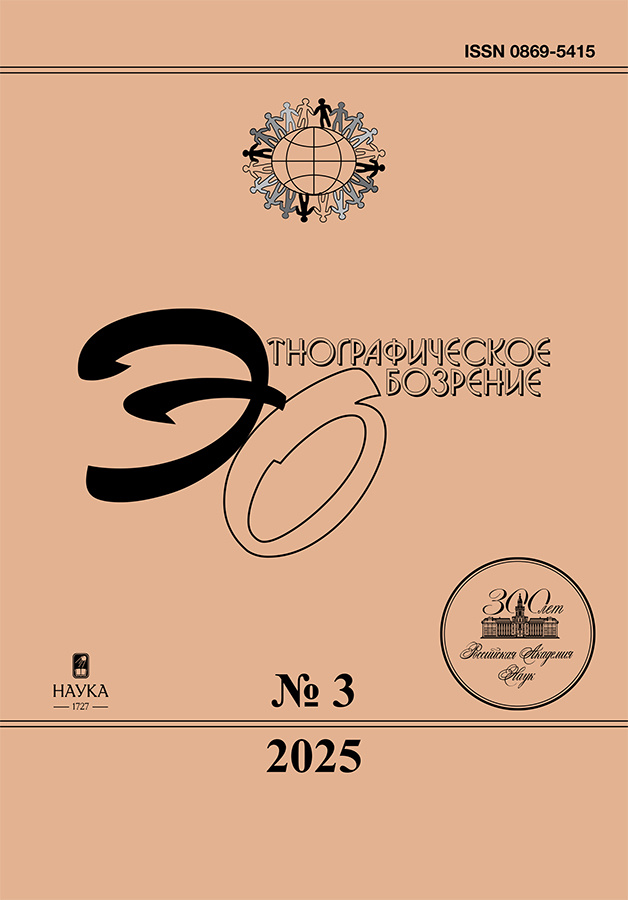The “proconsul of african nationalism”: Nyerere and Tanzania
- Authors: Turinskaya K.M1,2
-
Affiliations:
- Institute of Ethnology and Anthropology, Russian Academy of Sciences
- Institute for African Studies, Russian Academy of Sciences
- Issue: No 6 (2023)
- Pages: 178-191
- Section: Articles
- URL: https://ruspoj.com/0869-5415/article/view/672173
- DOI: https://doi.org/10.31857/S0869541523060118
- EDN: https://elibrary.ru/MNKRMX
- ID: 672173
Cite item
Abstract
In 2022, the 100th anniversary of Julius Nyerere (1922-1999), the leader of Tanganyika, the founder and first president of Tanzania, an outstanding African politician and statesman, was celebrated. His political legacy in Tanzania, as well as the socio-political dynamics in Tanganyika and Zanzibar are the milestones in the recent history of the East African region, in the history of ideology, national question, national movements on the continent. His name is associated with both African nationalism and pan-Africanism. The achievements of Nyerere as a nationalist - “gathering”, creating, structuring, stabilizing and preserving a multi-tribal Tanzania as an integral state unit - are at the same time the success of Nyerere as a pan-Africanist, since the Tanganyika-Zanzibar union is a relatively successful experience in the political unification of two previously separate sovereign territories.
Keywords
About the authors
K. M Turinskaya
Institute of Ethnology and Anthropology, Russian Academy of Sciences;Institute for African Studies, Russian Academy of Sciences
Email: krikri75@yandex.ru
Moscow, Russia
References
- Балезин А.С. Разработка теории некапиталистического пути развития для стран Африки в СССР: истоки и первые шаги // Становление отечественной африканистики, 1920-е - начало 1960-х / Отв. ред. А.Б. Давидсон. М.: Наука, 2003. С. 368-379.
- Бондаренко Д.М. Формирование нации в Танзании: своеобразие условий, особенности процесса и результат // "Каждый гражданин - неотъемлемая часть нации". К 100-летию со дня рождения основоположника независимой Танзании Джулиуса Камбараге Ньерере / Под ред. Д.М. Бондаренко, Т.С. Денисовой, С.В. Костелянца. М.: Институт Африки РАН, 2022. С. 71-84.
- Бондаренко Д.М., Денисова Т.С., Костелянец С.В. (ред.) "Каждый гражданин - неотъемлемая часть нации". К 100-летию со дня рождения основоположника независимой Танзании Джулиуса Камбараге Ньерере. М.: Институт Африки РАН, 2022.
- Графский В.Г., Страшун Б.А. Федерализм в развивающихся странах (Азия и Африка). М.: Международные отношения, 1968.
- Давидсон А.Б. (отв. ред.) Историческая наука в странах Африки. М.: Восточная литература, 1979.
- Денисова Т.С. Внутренняя политика Танзании в контексте наследия Дж. Ньерере // "Каждый гражданин - неотъемлемая часть нации". К 100-летию со дня рождения основоположника независимой Танзании Джулиуса Камбараге Ньерере / Под ред. Д.М. Бондаренко, Т.С. Денисовой, С.В. Костелянца. М.: Институт Африки РАН, 2022. С. 85-106.
- Мазов С.В. СССР и проект создания "Союза африканских государств", 1963-1964 гг. (по материалам российских архивов) // Азия и Африка сегодня. 2020. № 5. С. 66-72.
- Мансур Н.М. Восточноафриканское сообщество: 20 лет региональной интеграции // Азия и Африка сегодня. 2020. № 5. С. 42-46.
- Солодовников В.Г. Джулиус Ньерере - теоретик социалистической ориентации // Джулиус Ньерере: гуманист, политик, мыслитель / Отв. ред. Ю.Н. Винокуров. М.: Институт Африки, 2002. С. 21-31.
- Тетерин О.И. Абейд Амани Каруме // История Африки в биографиях / Ред. А.Б. Давидсон. М.: РГГУ, 2012. С. 846-861.
- Тетерин О.И. Занзибар: первый год после объединения // Азия и Африка сегодня. 2014. № 7. С. 64-66.
- Хохолькова Н.Е. Наследие Джулиуса Ньерере в контексте панафриканизма и афроцентризма // "Каждый гражданин - неотъемлемая часть нации". К 100-летию со дня рождения основоположника независимой Танзании Джулиуса Камбараге Ньерере / Под ред. Д.М. Бондаренко, Т.С. Денисовой, С.В. Костелянца. М.: Институт Африки РАН, 2022. С. 61-70.
- Чхиквадзе В.М. Правовые основы сближения советских наций // Социологические исследования. 1982. № 3. С. 3-11.
- Шлёнская С.М. Объединенная Республика Танзания. М.: Институт Африки РАН, 2014.
- Шлёнская С.М. Сепаратизм на Занзибаре // Сепаратизм в Африке южнее Сахары / Ред. Т.С. Денисова. М.: Институт Африки РАН, 2021. С. 124-135.
- Шлёнская С.М. Джулиус Камбараге Ньерере. Биография // "Каждый гражданин - неотъемлемая часть нации". К 100-летию со дня рождения основоположника независимой Танзании Джулиуса Камбараге Ньерере / Под ред. Д.М. Бондаренко, Т.С. Денисовой, С.В. Костелянца. М.: Институт Африки РАН, 2022. С. 9-15.
- Элез А.Й. К вопросу о соотношении панафриканизма и национализма // Научные труды Института бизнеса и политики. 2011. Вып. 8. М.: ИБП. С. 26-66.
- Chachage C.S., Chachage C.S.L. Nyerere: Nationalism and Post-Colonial Developmentalism // African Sociological Review. 2004. Vol. 8 (2). P. 158-179.
- Hunter E. Political Thought and the Public Sphere in Tanzania: Freedom, Democracy and Citizenship in the Era of Decolonization. Cambridge: Cambridge University Press, 2015.
- Iliffe J. A Modern History of Tanganyika. Cambridge: Cambridge University Press, 1979.
- Kamata N. Julius Nyerere: From a Territorial Nationalist to a Pan African Nationalist // The African Review. 2019. Vol. 46. No. 2. P. 309-332.
- Mwakikagile G. Nyerere and Africa: End of an Era. Dar es Salaam: New Africa Press, 2010.
- Nyerere J.K. Freedom and Development: Uhuru na Maendeleo: A Selection from Writings and Speeches 1968-1973. L.: Oxford University Press, 1973.
- Platteau J.-P. Redistributive Pressures in Sub-Saharan Africa: Causes, Consequences, and Coping Strategies // Africa's Development in Historical Perspective / Eds. E. Akyeampong, R.H. Bates, N. Nunn, J. Robinson. Cambridge: Cambridge University Press, 2014. P. 153-207.
- Saul J.S. Socialism in Postcolonial Africa // Encyclopedia of African History / Ed. K. Shillington. N. Y.: Fitzroy Dearborn; Taylor & Francis Group, 2005.
- Shivji I. Nyerere, Nationalism and Pan-Africanism. Decisive Moments in Nyerere's Intellectual and Political Thought. Mar. 17, 2011. https://www.pambazuka.org/pan-africanism/nyerere-nationalism-and-pan-africanism
- Yates D. Bjerk Paul. - Julius Nyerere // Cahiers d'études africaines. 2020. No. 239. P. 707-709. https://doi.org/10.4000/etudesafricaines.31896
Supplementary files











